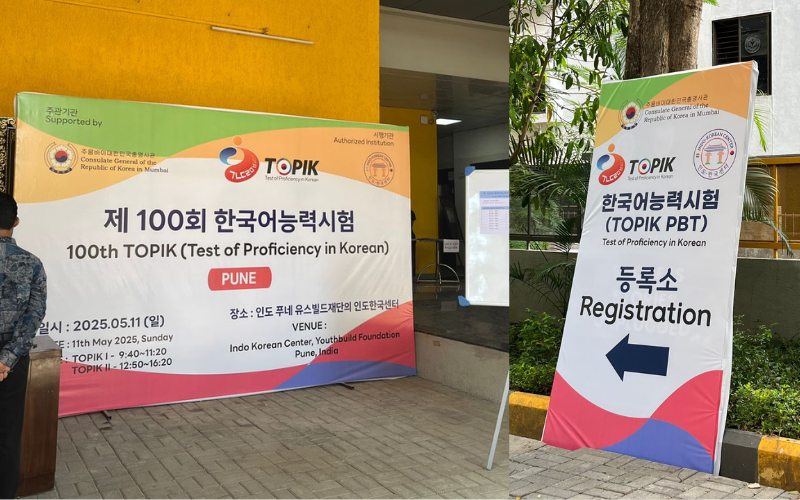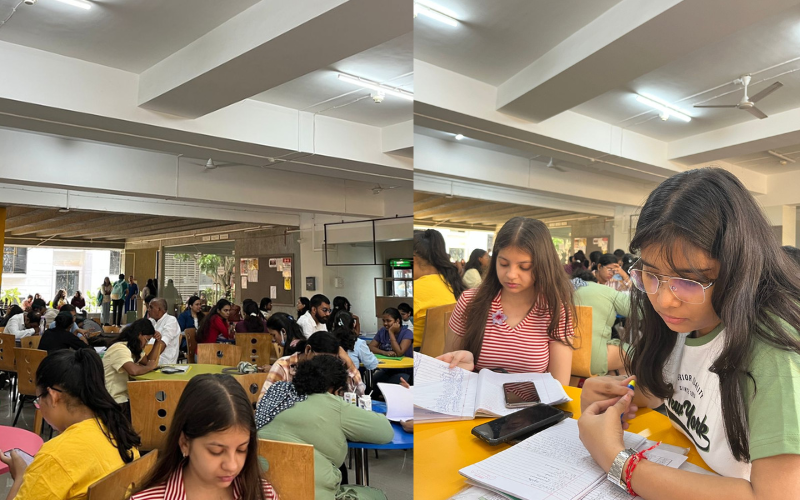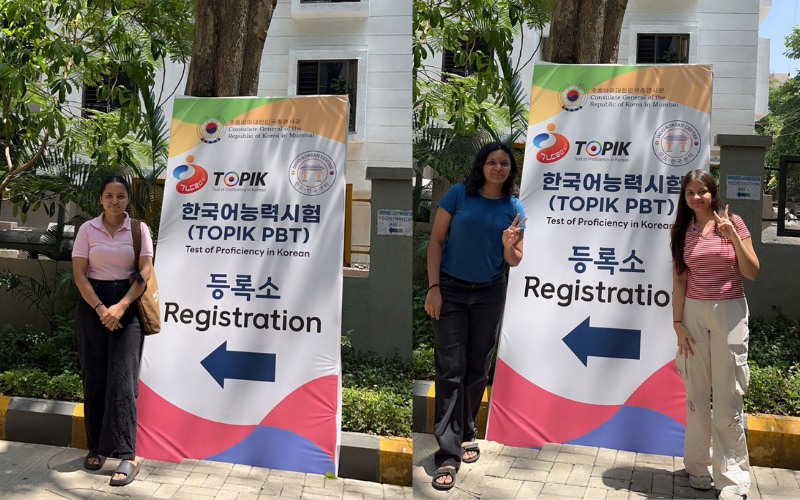Pune Welcomes Western India’s First TOPIK Centre, A Milestone in Korea-India Cultural Exchange
2025-05-15On May 11, 2025, in a moment of historic significance for Korean language learners in India, the first official TOPIK (Test of Proficiency in Korean) centre in western India was launched in Pune under the aegis of the King Sejong Institute Pune (KSI Pune). Designated by the King Sejong Institute Foundation (KSIF) under Korea’s Ministry of Culture, Sports and Tourism, and certified by the Ministry of Education, Republic of Korea, the centre successfully hosted its debut TOPIK exam on Sunday.

I still remember the anticipation in the air as I stepped into the exam hall that morning—nervous, hopeful, and surrounded by nearly 200 fellow learners who shared the same passion for the Korean language. The newly opened centre, nestled within the India Korea Center (IKC) and operated by Kiwa Enterprise, didn’t just host an exam—it created a milestone for Korean language education in western India. Despite the tense socio-political climate in India over recent weeks, the event was carried out with seamless efficiency. As a test-taker myself, I observed firsthand the impeccable organization, tight security, and respectful environment maintained by the administrative team.

“It’s more than just an exam centre,” says Dr. Min Ji-young, Academic Head at KSI Pune. “This is a cultural bridge. Through language, we are planting long-term seeds of understanding between India and Korea.” The faculty, composed entirely of native, licensed Korean educators, provides training that extends beyond grammar and vocabulary, offering deep immersion into Korean history, customs, and social nuance.
The initiative to bring the TOPIK centre to Pune stems from a growing demand across India for formal Korean education. Once limited to Delhi, Chennai and Manipur, the introduction of this western hub marks a strategic expansion aligned with Korea’s cultural diplomacy goals in South Asia. It also opens doors for Indian students aspiring to study, work, or collaborate with Korean enterprises and institutions.
Behind this movement is Kiwa Enterprise, a private initiative that has consistently championed Korean language and cultural education through its JustKiwa platform. According to their website, KSI Pune aims not only to develop language proficiency in listening, speaking, reading, and writing, but also to offer a broader research and academic exchange platform. Plans are underway to establish industry-academic collaboration programs that will link Indian and Korean organizations—especially in the design, technology, and education sectors.
The success of the first exam has energized both staff and students. “I felt like I was part of something much bigger than just a language test,” said Priya, a B.A. student who traveled from Ahmedabad to take the Level II exam. “It felt like a celebration of everything I’ve loved about Korea—from its language to its values.”

As someone who has spent two decades documenting Korea’s cultural rise—from Hallyu to Hangul—this day felt particularly emotional. The expansion of Korean language infrastructure in India is no longer a vision for the future. It is a present reality—rooted in the efforts of dedicated individuals on both sides of the globe, and backed by the power of culture-driven diplomacy.
With this new chapter in Pune, Korea takes another thoughtful step toward building meaningful, human connections across continents. And for Indian learners, the gateway to understanding Korea just became much more accessible.
How about this article?
- Like11
- Support3
- Amazing5
- Sad0
- Curious0
- Insightful0


